Mekong Delta: Need to take proactive step to mobilize supports for climate change response
(VNF) – By the year 2020, Vietnam will need an amount of US$ 30 billion to spend on responding to climate change. However, as the country is getting closer to the middle-income level, Vietnam is facing an issue when international aid is declining.
The statement was made by Pham Van Tan, Vice Head of the Department for Climate Change, Ministry of Natural Resources and Environment (MonRE) in the conference themed: “Increasing resources to support climate change response in the Mekong Delta region” which was jointly held by the Vietnam Union of Friendship Organizations (VUFO), the People’s Committee of An Giang province, MonRE and the Aid for Social Protection program foundation Vietnam (AFV) on November 28.
 |
Pham Van Tan, Vice Head of the Department for Climate Change, Ministry of Natural Resources and Environment in the conference (photo: Phi Yen)
According to data reported by the People’s Aid Coordinating Committee (PACCOM), during the last 5-year period (2013-2017), the whole country has received total aid worth US$ 140.6 million from foreign non-governmental organizations (NGOs) in assisting response to climate change.
However, sponsorship value for the Southwest region (13 provinces in the Mekong Delta) remain modest. The region is ranked as the second lowest in the nation in terms of aid value for climate change response (only higher than the Central Highland) while it is coping with numerous challenges brought about by climate changes.
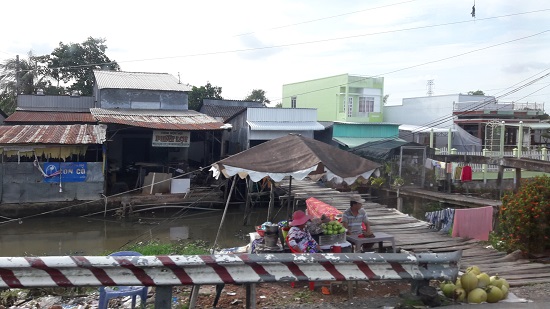 |
Mekong Delta region is facing numerous challenges brought about by climate change (illustrative photo: Phi Yen)
Against this backdrop, Vietnam is seriously in need for proper strategies and approaches to effectively mobilize necessary resources to deal with climate change.
Nguyen Ngoc Hung, Vice Head of PACCOM said, the strengths of foreign NGOs lie in their new approaches in solving problems, simple administration system, quick implementation, and positive contribution to raising local people & officers’ knowledges, and the capability to coordinate closely with the State’s relevant agencies to tackle certain issues.
However, there are limitations, too, Hung said, pointing out some drawbacks such as limited project scale (mostly are medium, small projects), narrow project field (lack of projects in water source protection, environment-related policies mobilization, etc.)
At the same time, the majority of foreign NGOs projects are short-term ones (duration of within 2 years) with limited number of inter-region, inter-zone projects, which lead to insufficient connection between different localities.
Based on the aforementioned strengths and limitations, PACCOM has proposed several solutions to improve the effectiveness in mobilizing resources in responding to climate change.
Accordingly, it is necessary to foster close collaboration between various stakeholders and foreign NGOs, international organizations, the Government, National Assembly’s affiliated agencies and Vietnam’s social organizations.
Furthermore, in order to ensure the effectiveness of resources mobilization, it is necessary to improve the proactiveness of localities, making sure that locality can work independently and directly with the sponsors, partners, instead of relying on the agent.
Hung also cited two examples of Vinh Long and Long An (two provinces in the Mekong Delta), stressing the two provinces’ outstanding aid value was attributed to efforts in maintaining close cooperation with foreign NGOs.
 |
Vice President of VUFO speaks on the role of information sharing in mobilizing resources in responding to climate change (photo: Phi Yen)
In addition, to attract more sponsors and partners, including foreign NGOs, information sharing is of great significance.
According to Vice President, Chief Secretary of VUFO Don Tuan Phong, the launch of an online platform to upload and disseminate information regarding aid opportunities, models in climate change response which link up different sectors, ministries and localities is one of the most helpful approach to reinforce the effectiveness of aid mobilization for climate change response.
In addition, PACCOM also emphasized the need for persifying project model, fostering the coordination between organizations working in climate change response, highlighting the roles of Vietnamese NGOs in deploying tasks on humanitarian aid in general and environment-related fields in particular.
At the conference, delegates also voiced up experiences in funding and aid mobilization. According to Pham Minh Thao, representative of the World Wild Fund (WWF), localities should pay attention to time management in reaching for sponsors, making sure they have sufficient time to design their proposal.
For a persuasive proposal, it is highly important to take account of some factors such as: the impacts and detailed outcomes of the projects, sustainability and possibilities in replicating the model, the capability in benefiting the community, gender-based related issues, and the coordination and contribution of partners from both public and private sectors./.
( Phi Yen )
Recommended
 National
National
Vietnam News Today (May 13): Vietnam Maintains High Human Development Index Despite Global Slowdown
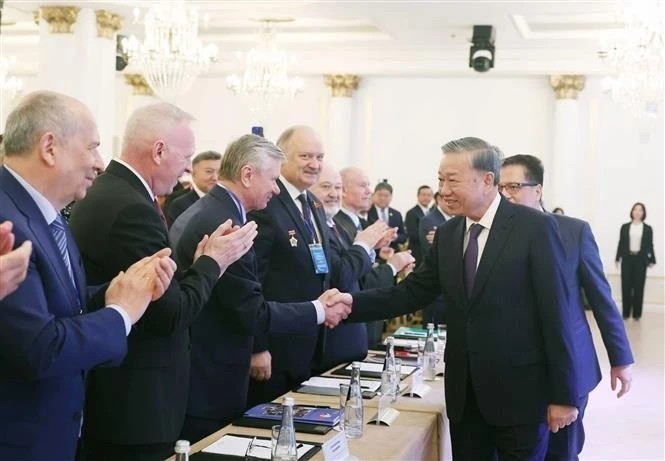 National
National
Vietnam News Today (May 12): Party General Secretary Meets With Russian Experts, Intellectuals
 National
National
Vietnam News Today (May 11): Vietnam, Austria to Boost Cooperation in High-Tech Development, Innovation
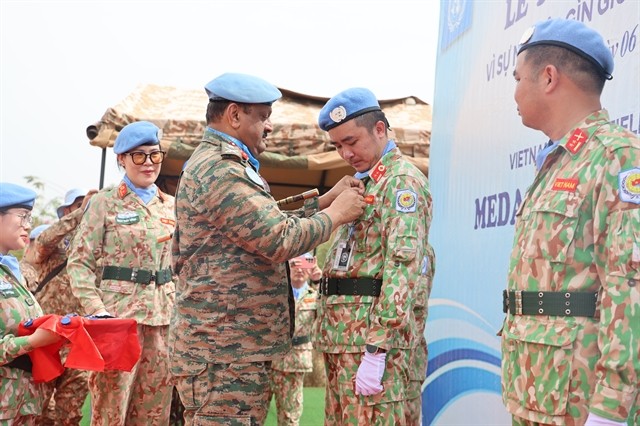 National
National
Vietnam News Today (May 10): Vietnamese Peacekeepers Honored with UN Medal in South Sudan
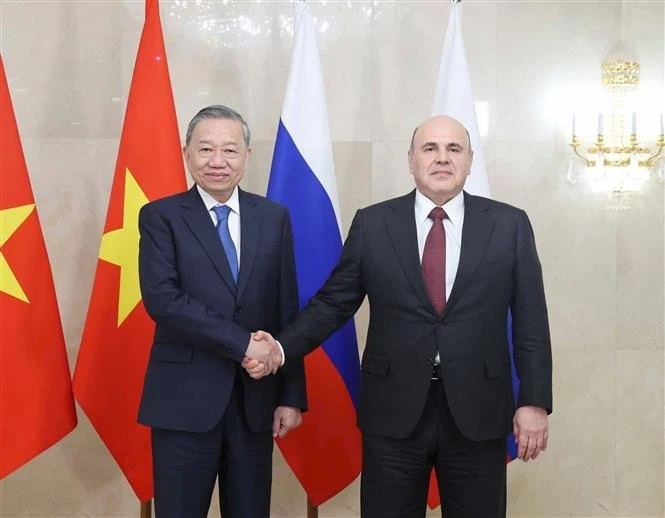 National
National
Vietnam News Today (May 9): Vietnam Ready to Work With Russia to Elevate Relations
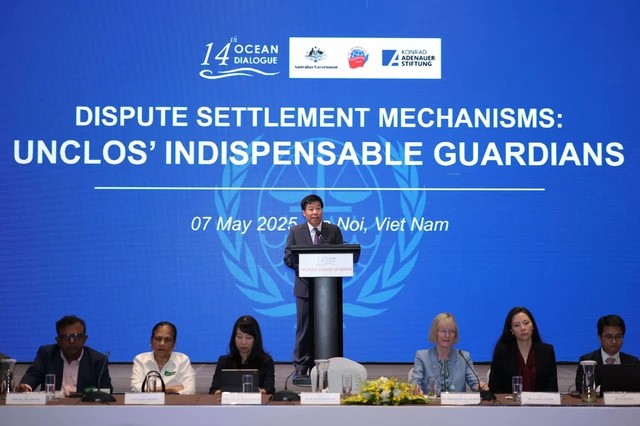 National
National
Vietnam News Today (May 8): Vietnam Remains Committed to UNCLOS
 National
National
Vietnam News Today (May 7): Vietnam Hosts Over 7.67 Million International Visitors in First 4 Months
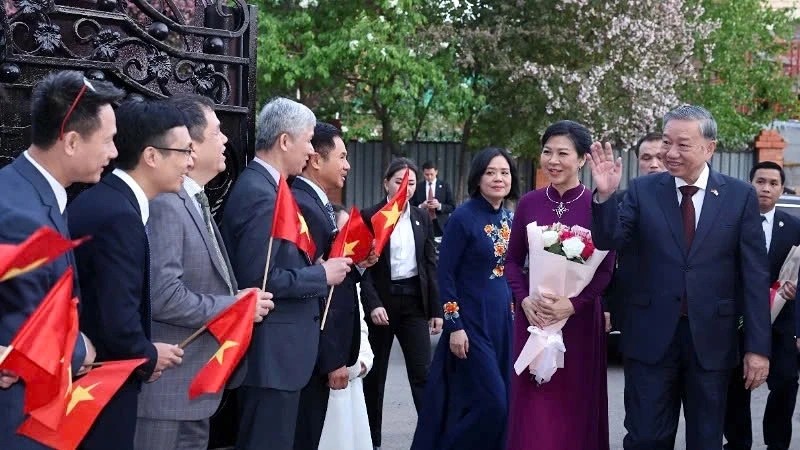 National
National
